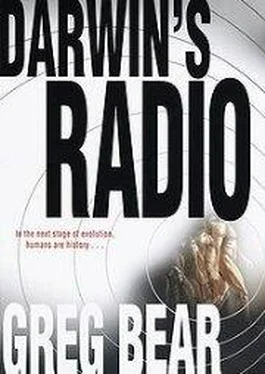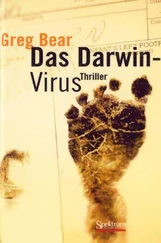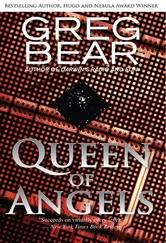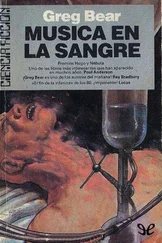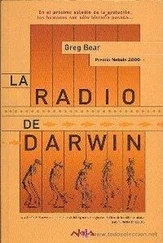Mitch nodded. “I suppose.”
The driver shook his head. “I won’t cross that line. It’s a long line. Mister, I take you back to the station, where you’ll be safe.”
“No,” Mitch said. “Let me out here.”
He paid the driver and walked to the curb. The taxi swung around and drove away just before other cars could block it in.
Mitch’s jaw clenched. He could feel and smell the tension, the social electricity, in the long line of men and women, mostly young at first, but now more and more older, emerging from the buildings, all marching with left hands held high.
Not fists; hands. Mitch found that significant.
A police car parked just a few yards from him. Two patrol officers stood by their open doors, just watching.
Kaye had joked about wearing a mask, the day they had first made love. They had made love so few times. Mitch’s throat constricted. He wondered how many of the women in the march were pregnant, how many had had their tests for exposure to SHEVA return positive, and how that had affected their relationships.
“You know what’s going on?” an officer called to Mitch.
“No,” Mitch said.
“Think it’s going to get ugly?”
“I hope not,” Mitch said.
“We weren’t told a damned thing,” the officer grumbled, then climbed back into the patrol car. The car backed up but was hemmed in by other cars and could go no farther. Mitch thought it was wise they did not turn on their sirens.
This march was different from the march in San Diego. The people here were tired, traumatized, almost past hope. Mitch wished he could tell them all that their fear was unnecessary, that this was not a disaster, not a plague, but he was no longer sure what to believe. All belief and opinion faded in the presence of this massive tide of emotion, of fear.
He did not want the job at SUNY. He wanted to be with Kaye and protect her; he wanted to help her get through this, professionally and personally, and he wanted her to help him, as well.
It was no time to be alone. The whole world was in pain.
Kaye opened the door to the condominium and walked in slowly. She kicked the heavy door shut with two bangs of her foot, then leaned into it with her hand to get it latched. She dropped her purse and valise on the chair and stood for a moment as if to get her bearings. She had not slept in twenty-eight hours.
It was late morning outside.
The phone message light blinked at her. She retrieved three messages. The first was from Judith Kushner, asking her to call back. The second was from Mitch, leaving an Albany phone number. The third was from Mitch also. “I’ve managed to get back to Baltimore, but it wasn’t easy. They won’t let me in the building to use the key you gave me. I tried Americol but the switchboard says they’re not transferring outside calls, or you’re not available, or something. I’m worried sick. It’s hell out here, Kaye. I’ll call in a few hours and see if you’re home.”
Kaye wiped her eyes and swore under her breath. She could hardly see straight. She felt as if she were stuck in molasses and no one would let her clean her shoes.
Americol had been surrounded by four thousand protesters for nine hours, shutting off traffic all around the building. Police had moved in and succeeded in roiling the crowds, breaking them into smaller and less controlled groups, and riots had broken out. Fires had been started, cars overturned.
“Where do I call, Mitch?” she murmured, taking the phone out of its recharging cradle. She was paging through the phone book, looking for the number of the YMCA, when the phone rang in her hand.
She fumbled it to her ear. “Hello?”
“Dark Intruder again. How are you?”
“Mitch, oh God, I’m okay, but I’m so tired.”
“I’ve been walking all over downtown. They burned part of the convention center.”
“I know. Where are you?”
“A block away. I can see your building and the Pepto-Bismol Tower.”
Kaye laughed. “Bromo-Seltzer. Blue, not pink.” She took a deep breath. “I don’t want you here anymore. I mean, I don’t want to be with you here anymore. Mitch, I’m not making sense. I need you so badly. Please come. I want to pack and get out. The bodyguard is still here, but he’s down in the lobby. I’ll tell him to let you in.”
“I didn’t even try to get the job at SUNY,” Mitch said.
“I quit Americol and theTaskforce. We’re equal now.”
“We’re both bums?”
“Shiftless and rootless and with no visible means of support. Other than a large bank account.”
“Where will we go?” Mitch asked.
Kaye reached into her purse and pulled out the two small boxes containing SHEVA test kits. She had taken them from the common stores area on the seventh floor at Americol. “How about Seattle? You have an apartment in Seattle, don’t you?”
“Yes.”
“Exquisite. I want you, Mitch. Let’s go live forever and ever in your bachelor apartment in Seattle.”
“You’re nuts. I’m coming right over.”
He hung up and she laughed in relief, then broke into sobs. She smoothed the phone against her cheek, realized how crazy that was, put it down. “I am really strung out,” she told herself, walking to the kitchen. She kicked off her shoes, pulled a Parrish print that had belonged to her mother from the wall, laid it on the dining room table, then all the other prints that belonged to her, her family, her past.
In the kitchen, she drew a glass of cold water from the refrigerator tap. “Screw luxury, screw security. Screw propriety.” She worked through a list often other items to screw, and at the end of the list came “goddamned stupid me.”
Then she remembered she had better let Benson know Mitch was coming.
Dicken walked toward his old office in the subbasement of Building 1 at 1600 Clifton Road. As he walked, he fingered his way through a vinyl packet of new material — special federal-grade security pass, fresh-printed instructions on new security procedures, talking points for arranged interviews later in the week.
He could not believe it had come to this. National Guard troops patrolled the perimeter and the grounds, and while there had not yet been any violent incidents at the CDC, phone threats arrived at the main switchboard as often as ten times a day.
He opened his office door and stood for a moment in the small room, savoring the cool and quiet. He wished he could be in Lagos or Tegucigalpa. He was much more at home working under rugged conditions in remote places; even the Republic of Georgia had been a bit too civilized, and therefore a bit too dangerous, for his tastes.
He much preferred viruses to out-of-control humans.
Dicken dropped the packet on his desk. For a moment, he could not remember why he was here. He had come to pick up something for Augustine. Then he recalled: the Northside Hospital autopsy reports on first-stage pregnancies. Augustine was working on a plan so top-secret Dicken knew nothing about it, but all the files pertaining to HERV and SHEVA in the building were being copied for his benefit.
He found the reports, then stood pensively, remembering the conversation with Jane Salter months ago, about the screaming of the monkeys in these old subbasement rooms.
He tapped his toe on the floor to the rhythm of an old and morbid child’s song and murmured, “The bugs go in and the bugs go out, the monkeys will scream and the apes will shout…”
No doubt about it anymore. Christopher Dicken was a team player, hoping just to survive with his wits and his emotions in a few well-ordered pieces.
He picked up the vinyl packet and the folders and left the office.
Читать дальше
Конец ознакомительного отрывка
Купить книгу
